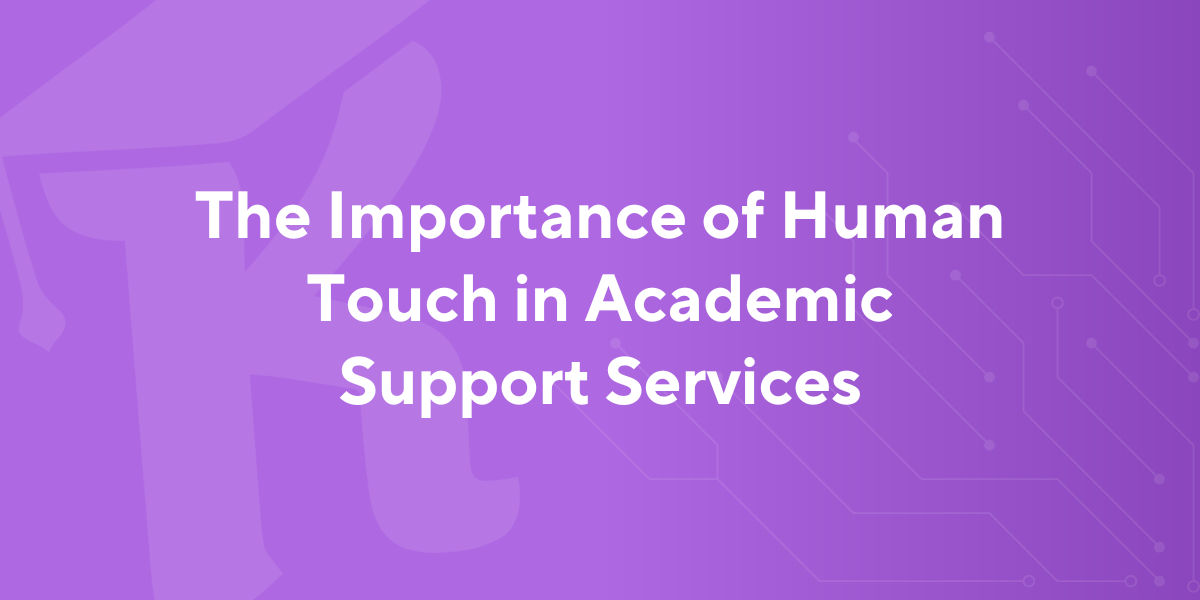Explore why the human touch remains irreplaceable in student support services, despite the rise of AI technologies.
Understanding the Role of Human Touch in Student Support
The human touch plays an indispensable role in academic support services. It goes beyond merely providing academic assistance; it encompasses emotional, psychological, and social support that technology cannot fully replicate. Tutoring is a prime example where human communication is crucial, as these interactions between people not only facilitate better comprehension of academic material but also foster a sense of belonging and community among students.
Human touch ensures that students feel heard, understood, and valued. It encourages open communication and trust, which are essential components in any support system. The empathy and compassion that people bring to the table are irreplaceable. They can read subtle emotional cues and respond appropriately, something AI currently struggles to do.
The Limitations of AI in Addressing Emotional and Psychological Needs
While AI has made significant strides in various fields, its limitations in addressing emotional and psychological needs are evident. AI can process vast amounts of data, identify patterns, and even mimic human conversation to some extent, but it lacks genuine empathy and emotional intelligence. Students often face challenges that require a compassionate and understanding ear, something AI cannot offer.
Emotional and psychological support often involves nuanced conversations and a deep understanding of individual circumstances. Professional staff and paraprofessional peer educators can provide personalized support and build long-lasting relationships that are crucial for student well-being. AI, on the other hand, may offer generic advice and lack the ability to adapt to the unique needs of each student.
Integrating AI Without Losing the Human Element
AI undoubtedly has a place in student support services, offering efficiency and accessibility that can enhance the overall experience. For instance, AI can streamline administrative tasks, provide instant answers to common queries, and offer 24/7 support. However, it is crucial to integrate AI in a way that complements rather than replaces human interaction.
One approach is to use AI for routine and repetitive tasks, freeing up employees to focus on more complex and sensitive issues. AI can assist in data collection and analysis, helping staff to make informed decisions. The goal should be to create a hybrid model where AI and human support work in tandem, ensuring that the human touch remains at the core of student support services.
Balancing Technology and Personal Interaction in Student Support
As technology continues to evolve, the future of student support services will likely involve a careful balance between AI and personal interaction. Institutions need to prioritize the human element while leveraging the benefits of AI to enhance efficiency and accessibility. The key is to ensure that AI serves as a tool to support, not replace, person-to-person support.
Future advancements in AI may bring more sophisticated emotional recognition and response capabilities, but the fundamental need for human connection will remain. Building a robust support system that values both technology and personal interaction will be essential for fostering student success and well-being.
At Knack, we believe in the irreplaceable value of human touch in student support services. Schedule a call with one of our representatives to discover how our peer tutoring strategy can combine personalized human interaction with technology to create a holistic support system for your students.
